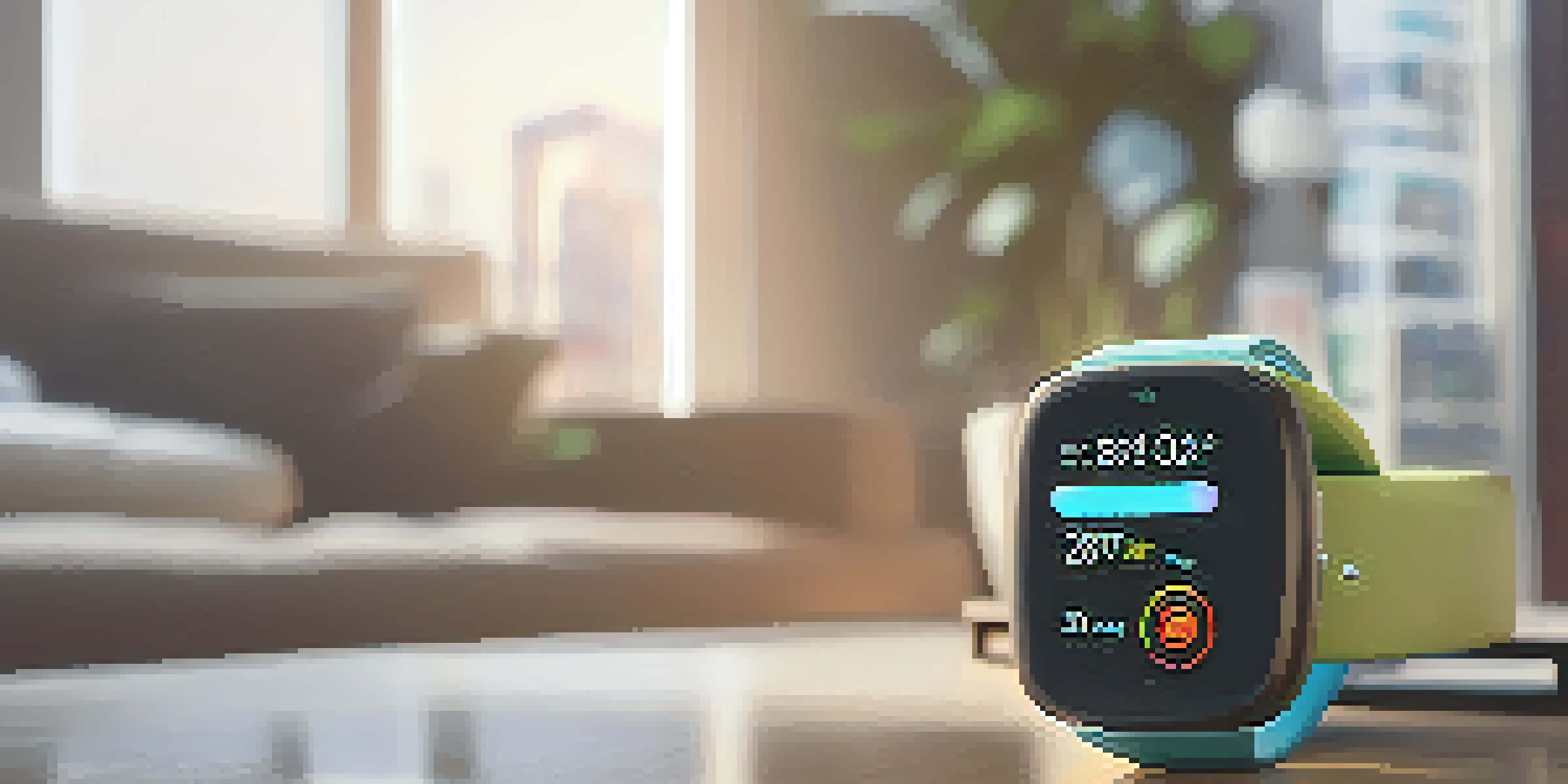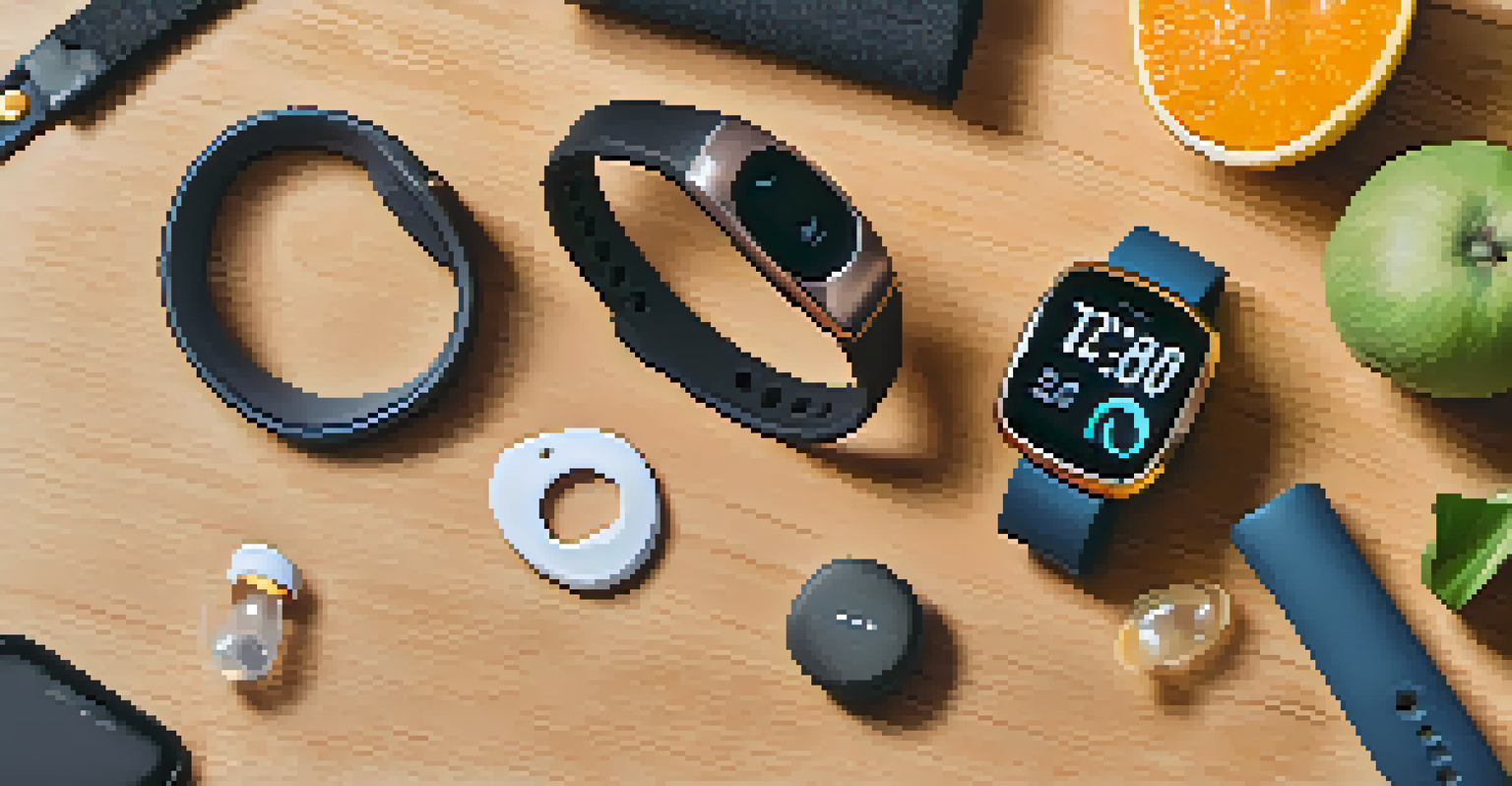The Impact of Wearable Tech on Personal Health Monitoring

Introduction to Wearable Technology in Health Monitoring
Wearable technology has become a buzzword in recent years, especially in the realm of personal health. These devices, from smartwatches to fitness trackers, are designed to monitor various health metrics, empowering individuals to take charge of their well-being. With the ability to collect real-time data, they offer insights into our daily habits and overall health trends.
The greatest wealth is health.
Imagine strapping on a device that not only tracks your steps but also monitors your heart rate, sleep patterns, and even stress levels. This is the reality of wearable tech, making personal health monitoring more accessible than ever. As we dive deeper into this topic, we’ll see how these devices are reshaping our understanding of health.
From casual fitness enthusiasts to those managing chronic conditions, wearable technology caters to a wide audience. This evolution in health monitoring is not just about convenience; it’s about fostering a proactive approach to health.
Key Features of Wearable Health Devices
Modern wearable devices come packed with features that were once the stuff of science fiction. Most common among these are heart rate monitors, step counters, and sleep trackers. For instance, a smartwatch can alert you if your heart rate exceeds a certain threshold, prompting you to take action if needed.

Another significant feature is the ability to sync with smartphones and health apps, allowing users to track their progress over time. This integration transforms raw data into visually appealing graphs and charts, making it easier to understand health trends. Therefore, users can make informed decisions based on their health metrics.
Wearables Empower Health Management
Wearable technology enables users to monitor their health metrics in real-time, promoting informed lifestyle choices.
Additionally, some devices offer advanced functionalities like ECG readings and blood oxygen monitoring. These features not only enhance personal health monitoring but also provide critical data that can be shared with healthcare professionals for better diagnosis and treatment.
Benefits of Personal Health Monitoring with Wearables
One of the most significant benefits of wearable technology is the empowerment it provides users in managing their health. By having access to real-time data, individuals can make informed lifestyle choices, whether it’s increasing physical activity or improving sleep habits. This proactive approach can lead to better overall health outcomes.
Wearable technology will continue to grow as it becomes more integrated into our daily lives and routines.
Moreover, wearables can promote accountability. For example, seeing your daily activity levels displayed can motivate you to reach your fitness goals. It's like having a personal trainer on your wrist, encouraging you to stay active and healthy.
Additionally, these devices can alert users to potential health issues before they escalate. Early detection of irregular heart rates or abnormal sleeping patterns can lead to timely interventions, ultimately saving lives.
Challenges and Limitations of Wearable Tech
Despite the many advantages, wearable technology is not without its challenges. One of the foremost concerns is accuracy; not all devices measure health metrics with the same precision. Users may find discrepancies between what their device reports and what is actually occurring within their bodies.
Privacy is another critical issue. Many wearables collect sensitive health data, raising concerns about how this information is stored and used. Users need to be aware of privacy policies and ensure they are comfortable with how their data is handled.
Integration Enhances Health Insights
The ability to sync wearables with smartphones and health apps transforms raw data into actionable insights.
Lastly, there's the risk of over-reliance on technology. While wearables can provide valuable insights, they should complement, not replace, regular check-ups and medical advice. Balance is key to maintaining a healthy relationship with these devices.
The Future of Wearable Technology in Healthcare
The future of wearable technology in healthcare looks promising, with continuous advancements on the horizon. Innovations such as artificial intelligence and machine learning are set to enhance the capabilities of these devices, making them even more intuitive and responsive to user needs. Imagine a device that not only tracks your health metrics but also predicts potential health issues.
Integration with telemedicine is another exciting prospect. As remote healthcare becomes more prevalent, wearables can play a crucial role in monitoring patients' health from afar. This will allow healthcare providers to offer personalized care without the need for frequent in-person visits.
As technology continues to evolve, the collaboration between tech companies and healthcare providers will be vital. This partnership can ensure that wearable devices are not only user-friendly but also clinically relevant, ultimately improving health outcomes for all.
Real-World Examples of Wearable Health Tech
Several companies have made significant strides in the wearable tech space, each offering unique solutions for health monitoring. For instance, Fitbit has become synonymous with fitness tracking, providing users with insights into their activity levels, heart rate, and sleep quality. Its user-friendly interface makes it easy for anyone to track their health journey.
Another noteworthy example is the Apple Watch, which has taken personal health monitoring to the next level. With features like ECG and blood oxygen monitoring, it appeals to those looking for comprehensive health insights. Its integration with the Apple Health app allows users to share data with healthcare providers seamlessly.
Future Innovations in Health Tech
Advancements like AI will make wearable devices more intuitive, while integration with telemedicine offers personalized care.
Lastly, devices like the Oura Ring are gaining popularity for their sleek design and advanced sleep tracking capabilities. By focusing on recovery and sleep quality, it highlights the importance of these factors in overall health, proving that wearable tech can cater to a variety of health needs.
Conclusion: Embracing Wearable Tech for Better Health
Wearable technology is more than just a trend; it's a transformative force in personal health monitoring. As we’ve explored, these devices empower individuals to understand their health better and make informed decisions. They bring a level of engagement and accountability that was previously hard to achieve.
While challenges exist, the benefits of adopting wearable tech far outweigh potential drawbacks. From early detection of health issues to the motivation provided by tracking progress, the advantages are clear. Embracing this technology can lead to a healthier lifestyle and ultimately, improved well-being.

In conclusion, as wearable tech continues to evolve, it presents an exciting opportunity for everyone to take control of their health. By being informed and engaged, we can harness the power of these devices to lead healthier, happier lives.